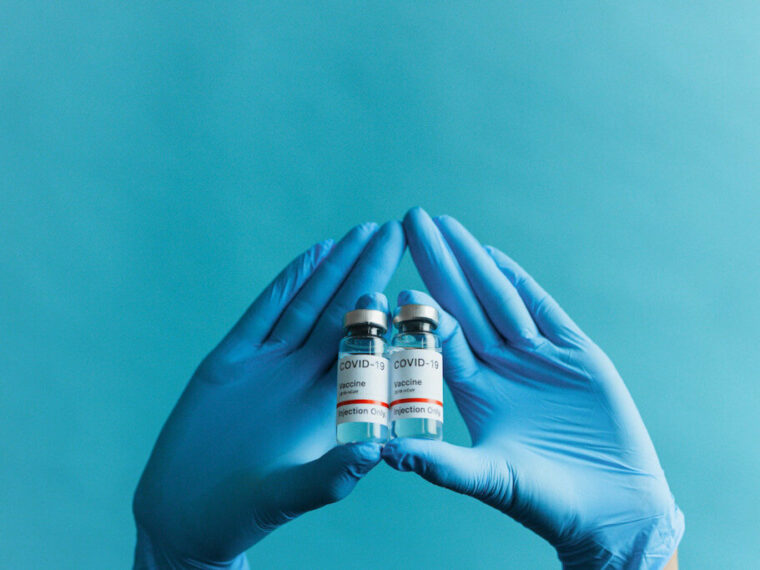According to the findings of the research conducted, having a history of infection as well as receiving vaccination can provide substantial protection against severe illness caused by COVID-19.
Our bodies are capable of generating an immune reaction when we are exposed to a pathogen for a second time if we have previously been vaccinated against the disease or have suffered a previous infection with the virus.
According to the findings of a recently published study, previous infection and vaccination both offer significant protection against the strain of the coronavirus that induces COVID-19 known as the Delta strain.
The findings of this study, according to those who are knowledgeable in the subject, demonstrate how important it is to get vaccinated against COVID-19, regardless of whether or not you have ever had the disease before. Is it possible to become immune to future COVID-19 infections if you’ve already had the virus?
Does This Imply That It is No Longer Necessary to Get Vaccinated Against the Disease?
It might be difficult to decide what to do in light of the abundance of new information that is being released on COVID-19 on a daily basis. But some recent research might be able to help shed some light on the subject.
In a Recent Study
According to a Reliable Source article, researchers found that a combination of vaccination and infection provides comprehensive protection against the Delta strain of the coronavirus. Supplemental findings such as the following were presented by the researchers:
Those who had COVID-19 and recovered from it had a lower risk of contracting a virus with the Delta strain compared to those who had been vaccinated against it. Individuals who had rebounded from COVID-19 had lower rates of cases and hospitalization than those who had been vaccinated against the virus.
Both getting vaccinated and having an infection in the past provided a significant amount of protection against serious illnesses and the need for hospitalization.
People who hadn’t been infected before or who had been vaccinated against COVID-19 were much more likely to become ill with the virus and require hospitalization than those who had been exposed to it before or who had been protected by the vaccine.
This research was conducted from May 30, 2021, all the way through November 20, 2021, and its primary focus were on the Delta strain. The information was gathered before the appearance of the Omicron strain and the beginning of the administration of booster shots.
According to Dr. Iahn Gonsenhauser, the chief quality and safety officer, as well as an assistant clinical professor at The Ohio State University’s Wexner Medical Center, “the most straightforward conclusion, is that for the Delta, and potentially the Omicron, a healthy immune system grants very strong protection.”
The Significance of Getting Vaccinated
Some individuals may conclude that they do not require vaccination after learning that those who had previously been infected with COVID-19 had a lower risk of becoming infected with the Delta strain of the coronavirus.
A teacher of intrinsic medicine at the University of Michigan, Dr. Nathaniel Soper, disproves this claim, stating that it is not accurate. “For individuals who have never been exposed to COVID-19 before and are not vaccinated, my recommendation remains to be that vaccines are extremely safe and highly efficient in avoiding severe infections and hospitalizations,” she said. Even if you have previously been treated for the disease, there is a possibility that you could become infected with the virus again.
According to Soper’s comments to Healthline, “It is risky to ignore vaccination and try to get COVID-19 in the hope that it will protect you.” “For instance, the possibility of COVID symptoms lasting for an extended period of time, placing stress on the healthcare system, necessitating time away from work, and the threats of transferring the infection to others who might be more susceptible to severe disease.”
Gonsenhauser Observed That the Effectiveness of Vaccines Declines Over the Course of Time
According to Gonsenhauser, who spoke to Healthline about the topic, “as Omicron continues to substitute all other variations, we are undergoing a reduced severity variant of the virus.”
“It stands to reason that the differences between vaccine-mediated immunity and natural immunity would become less significant over time. Keep in mind that the purpose of the vaccine has always been to lessen the effects of infection rather than to prevent disease entirely.
Additional Protection
The response of our bodies to vaccines and viruses is broken down by a reliable source from Japan. According to the findings of some studies, initial exposure to the Coronavirus (either through vaccination or direct infection) causes an intense surge in antibody production.
These antibodies are put to work to rid the body of any potential infections as quickly as possible. Because immunity declines over time, medical professionals recommend receiving a booster shot after six months have passed after a vaccination.
In the event that you contract an infection several months after the initial antibodies were produced, your body will react by producing a new set of antibodies to fight the infection. Which include cells that can live for a long time and hold a memory of the pathogen, which provides enhanced protection against subsequent infections.
However, because the coronavirus is a relatively new virus, researchers are uncertain regarding the duration of this protection. The experts agree that the most important takeaway from this should be that vaccines are effective. They lessen the severity of symptoms and the likelihood of requiring hospitalization if COVID-19 is contracted.
According to Dr. Soper, “I would recommend the vaccine for those individuals who are fit and active and are not deemed to be at a high risk of serious disease.”
“Even those at reduced risk of serious infectious disease, any potential risks of vaccination are still far exceeded by the dangers of infection,” he added.
“We frequently see young people in their 20s and 30s who are otherwise healthy suffering from severe infections. They could eventually wind up in ICU, and even relatively mild infections can cause symptoms that last a long time and are very disabling.





